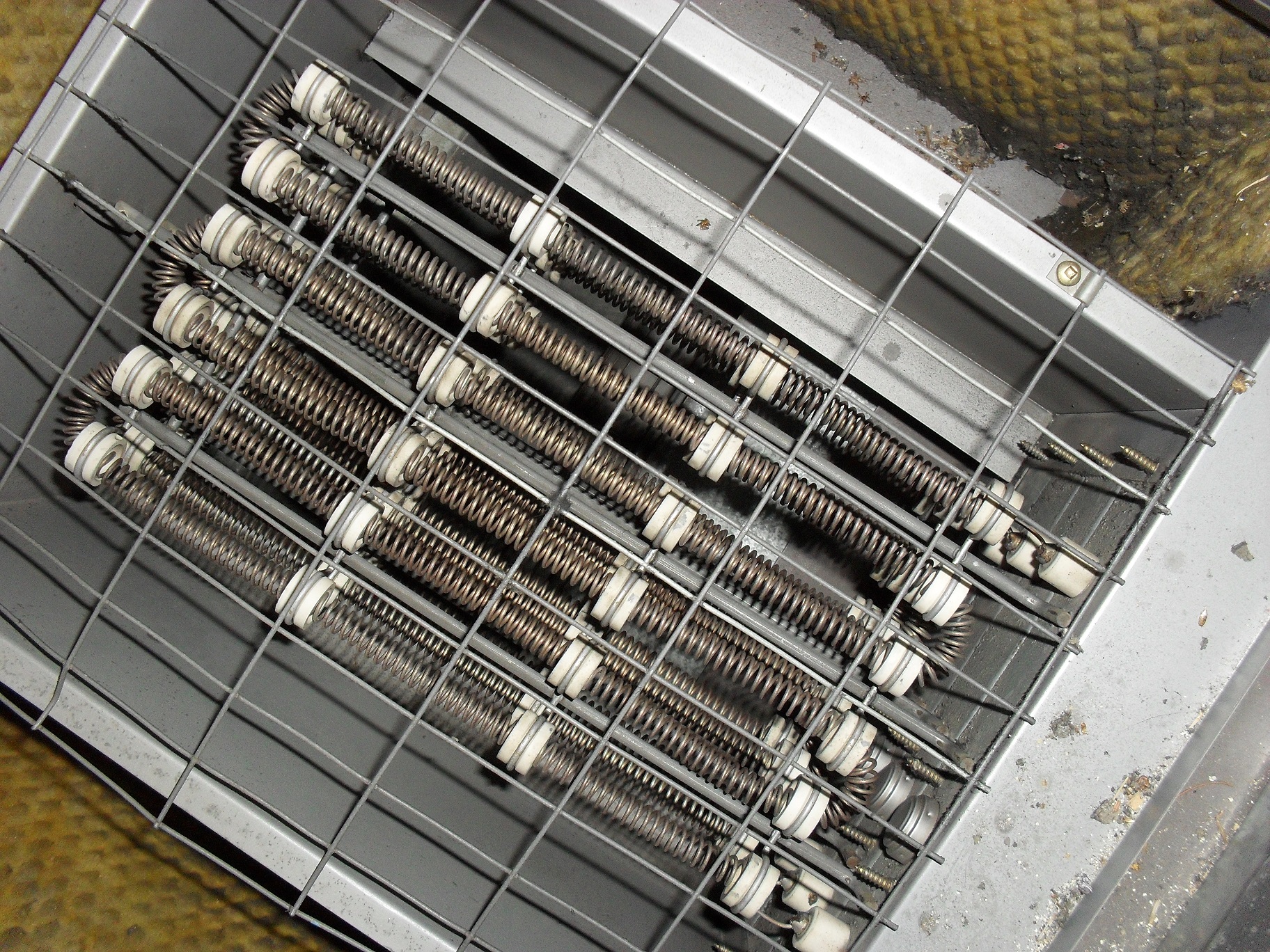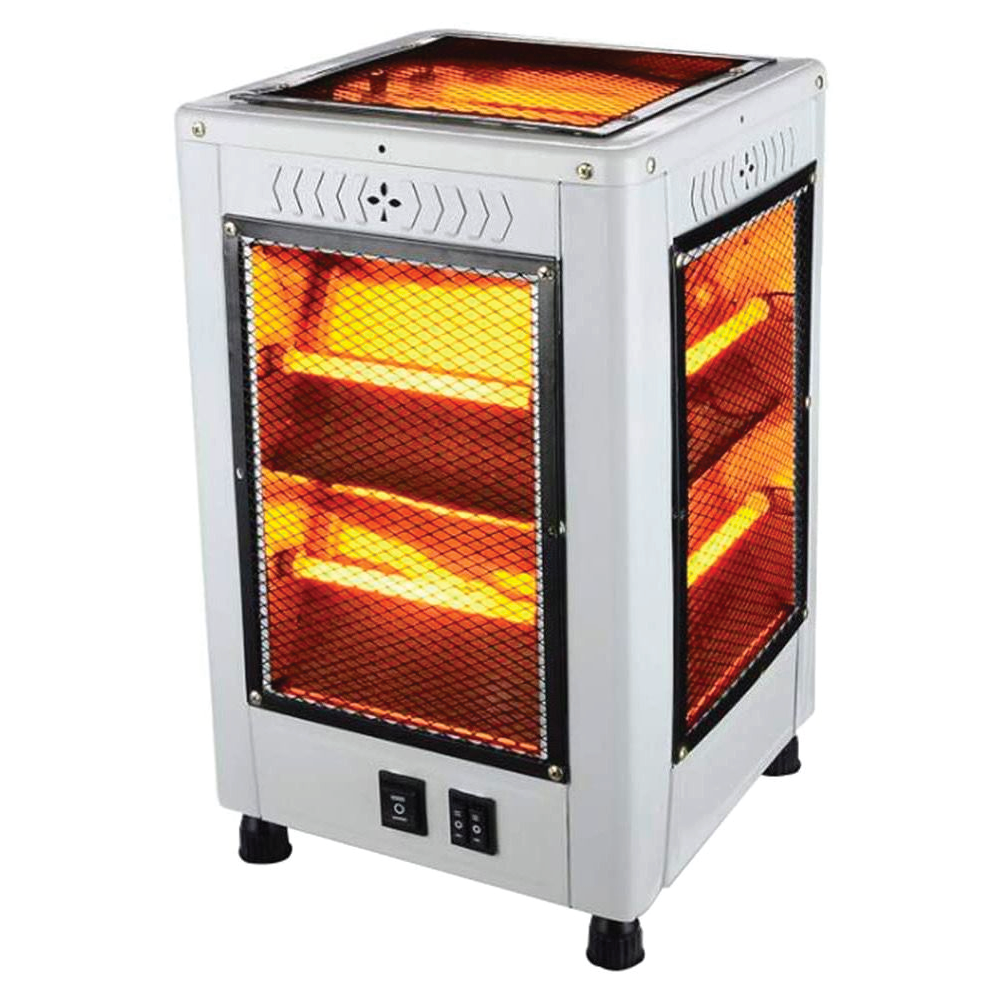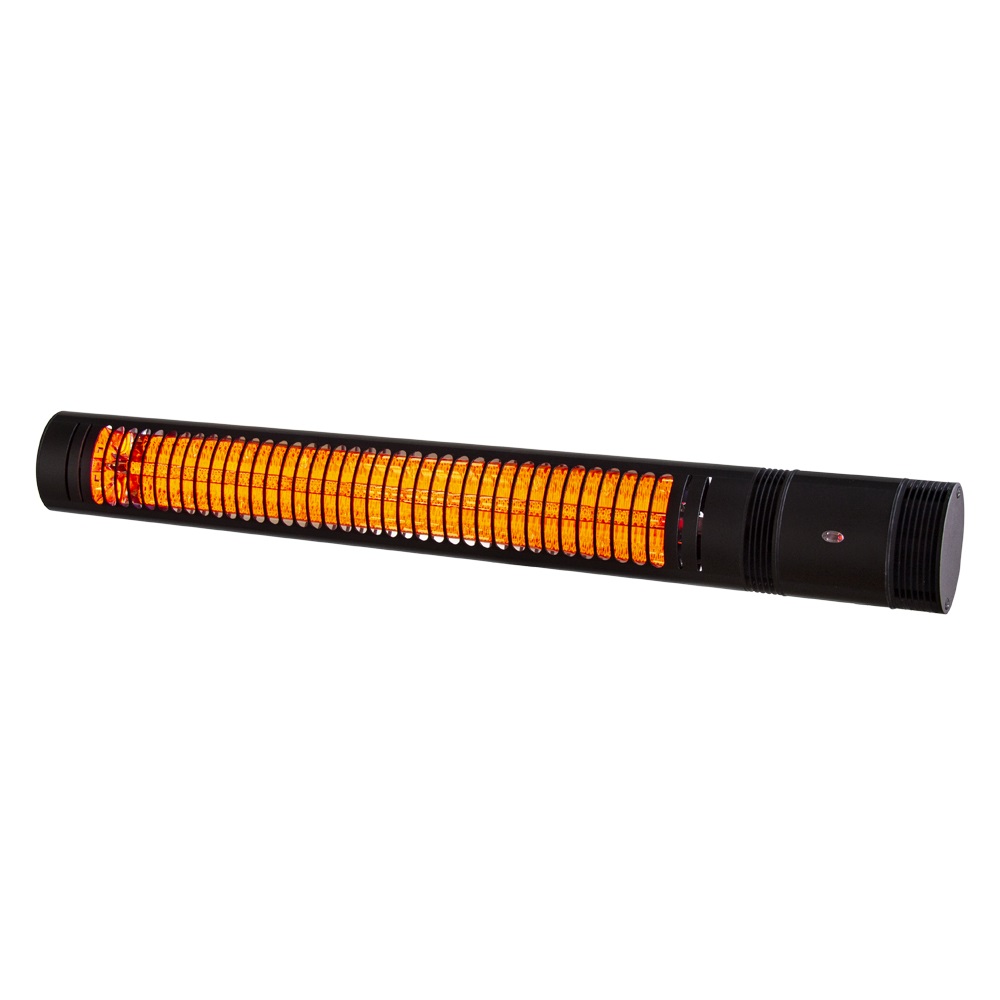Electric heater efficiency_ electric heaters are devices for heating homes that convert electric current to heating energy by using resistors that emit radiant energy. Resistors may be composed of nonmetallic carbon compounds, metal-alloy wire, or printed circuits. Heating parts may have exposed resistor coils installed on insulators, a printed circuit encased in glass, or metallic resistors embedded in refractory insulation parts and encased in protective metal. We can use fins to increase the area of dissipating the heat. Electric heaters are also employed for domestic central heating and for industrial material processing.
Types of Electric Heaters
Electric heaters work by electricity and can fall into three main categories:
- Convection heaters pass electricity into a heating element, making the part become hot. The elements are fabricated of both metal and ceramic, and the heating process is known as joule heating. Heat is exposed to the surrounding by convection. Some heaters have a fan to increase air circulation. Oil-filled space heaters do not have any fans.
- Infrared heaters carry electricity in a conductive wire and increase its temperature. Most of the heating and energy is radiant heating instead of convection. The hot wires send infrared rays. Heat is absorbed by solid surfaces rather than the air.
- Heat pumps have the same operation as air conditioners and refrigerators but in a reverse cycle. Convective and infrared electric heaters produce heat from electricity, but heat pumps just change the location of heat. Heat pumps move heat from the outside of space to the inside, warming it. Most heat pumps can operate reversibly and cool the space by pumping heat out.

Types of Resistance heating wire
There are three kinds of electric resistance heating wires as the following:
- Open Wire is nickel-chromium resistance wire which is installed on ceramic or mica insulation. For safety issues, they must be secure and should not be contacted by anybody or metal objects. This protection is important to prevent the danger of electric shock.
- Tubular cased wire has nickel chromium resistance wire coated by a magnesium oxide powder and enclosed in a heat resistance steel tube. This tube secures the users from the risk of electric shock.
- Open Ribbon is the same as open wire in material type but has an extended surface area that is exposed for airflow. It must be secured to prevent the risk of electric shock to the users.
Electric Heater Efficiency
Electric heater efficiency for all types is identified as 100% as they convert all the electricity into heat, but this does not mean they are cheap to run.
All electric-resistance heaters are 100 percent efficient since there is no energy loss in ducts or combustion chambers. It should be mentioned that some space heaters produce more quickly or more concentrated heat compared to others. Also, having an electric-resistance heater in homes to warm the entire house is usually more costly rather than using other methods, same as a heat pump or a natural gas furnace.
For estimating the running cost, you need to see the power rating of the heater, given in kilowatts (kW). More power rating demands more electricity and generates more energy, but also the charge will be proportionally higher.
The chart below illustrates typical running costs for electric heaters by considering 100% efficiency. Costs are for heaters with the highest operation rate and producing heat for an hour. You should remember that some heaters have a thermostat to automatically turn off the device when the desired room temperature is prepared, meaning the payment will be much less over several hours.

To calculate the charge yourself, times the output heat of an electric heater by the electric kWh unit price. Electric room heaters are all expensive to run and not a good option as a primary heat source. You should select the type of heater based on how you want to heat the space because otherwise, you may experience a high operating cost with not feeling increased comfort. Halogen electric heaters are the cheapest radiant heaters due to their low power rating (but also offer less heat). At the same time, oil-filled electric radiators are often the most affordable convector heater as there is a thermostat and control system on them to regulate the temperature.
Finally, if you need to have an electric room heater, use it only when it is no choice and consider the following suggestions:
- Use a timer on them; if there is not, you can buy a time switch for the plug from every tool shop.
- A thermostat will lessen running costs, though how much it drops depends on many factors, such as space size, insulation, and be sure the thermostat is not turned up too high.
- Do not use heaters for a long time, especially at peak hours if it is possible. It’s better to have night storage heaters that are charged at night.
Advantages and Disadvantages of Electric Heaters
The advantages of using electric heaters are:
- Low initial cost_ these heaters are usually lower in price compared to other types of heating systems.
- Clean Operation_ There is no requirement for refrigerant or oxygen, as the operation is neat and clean with electricity.
- No Toxic Gases_ As there is no combustion, there is no risk of toxic gases that may leak into space because of faulty units. No chimney is necessary, unlike the traditional coal or wood source of heating.
- Ease of Control_ unit’s temperature can be controlled more precisely and easily by using the thermostat on them.
- Smaller in Size_ They need smaller space compared to other heating units.
- Ozone Friendly_ As no refrigerant is used, this type of heating system is more ozone-friendly.
The disadvantages of using electric heating are:
- Higher running cost compared to other fuels.
- A humidity controlling system may be a problem.

Buy Equipment or Ask for a Service
By using Linquip RFQ Service, you can expect to receive quotations from various suppliers across multiple industries and regions.
Click Here to Request a Quotation From Suppliers and Service Providers
Read More on Linquip
- Fan Efficiency
- Space Heater Efficiency For Various Types of Heaters
- Heater Efficiency
- The 9 Best Commercial Patio Heaters in 2022 + Buying Guide
- The 10 Best Electric Space Heaters in 2022 + Buying Guide
- 7 Best Tankless Water Heater Electric of 2022: A Clear Guide
- Your Handy Guide to Water Heater Installation Cost in 2022
- Boilers, Suppliers, Indirect Fired Water Heaters
- Energy Efficient Electric Heater: A Practical Guide
- Thermocouple for Water Heater: How does it Work?



